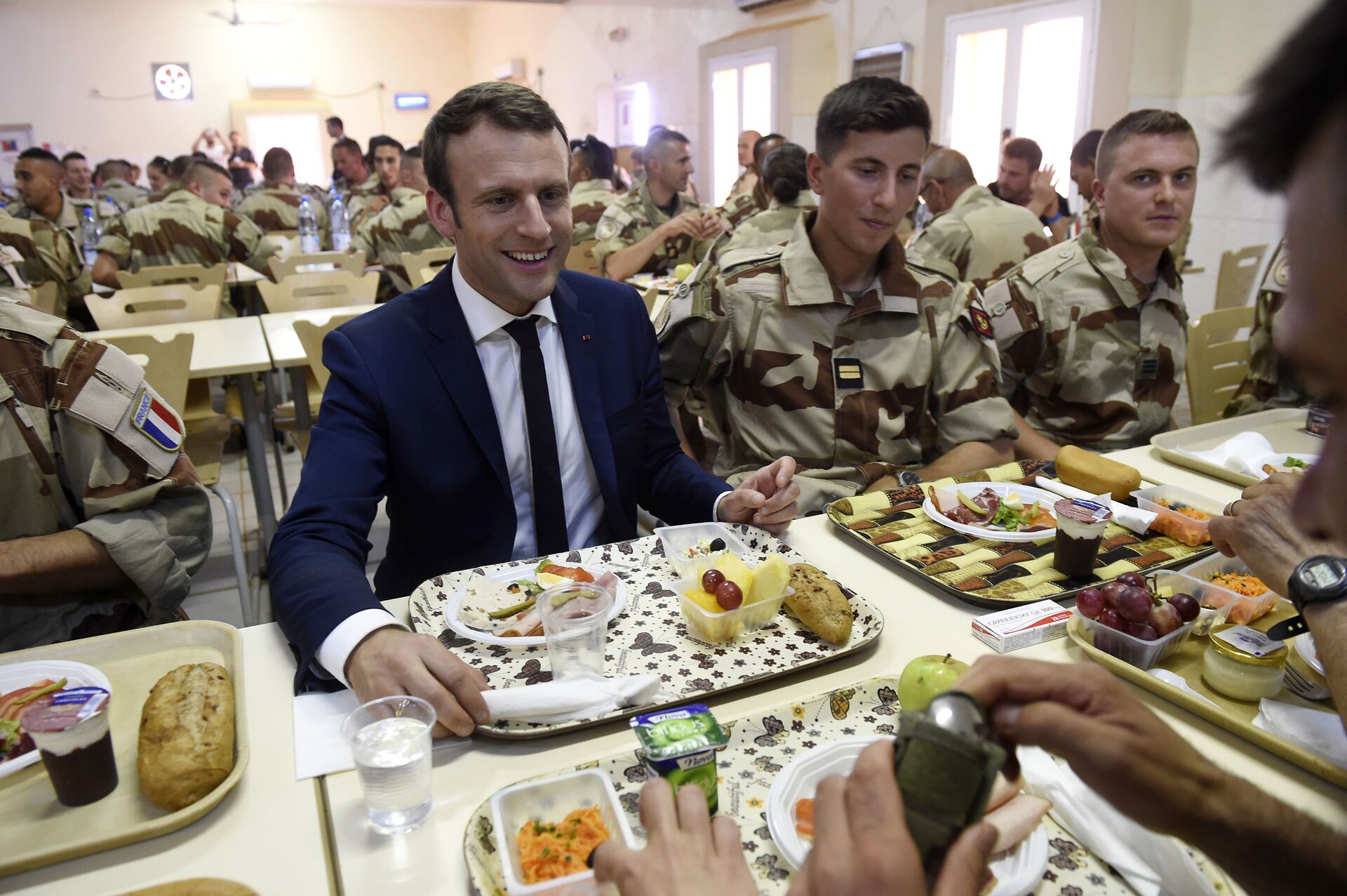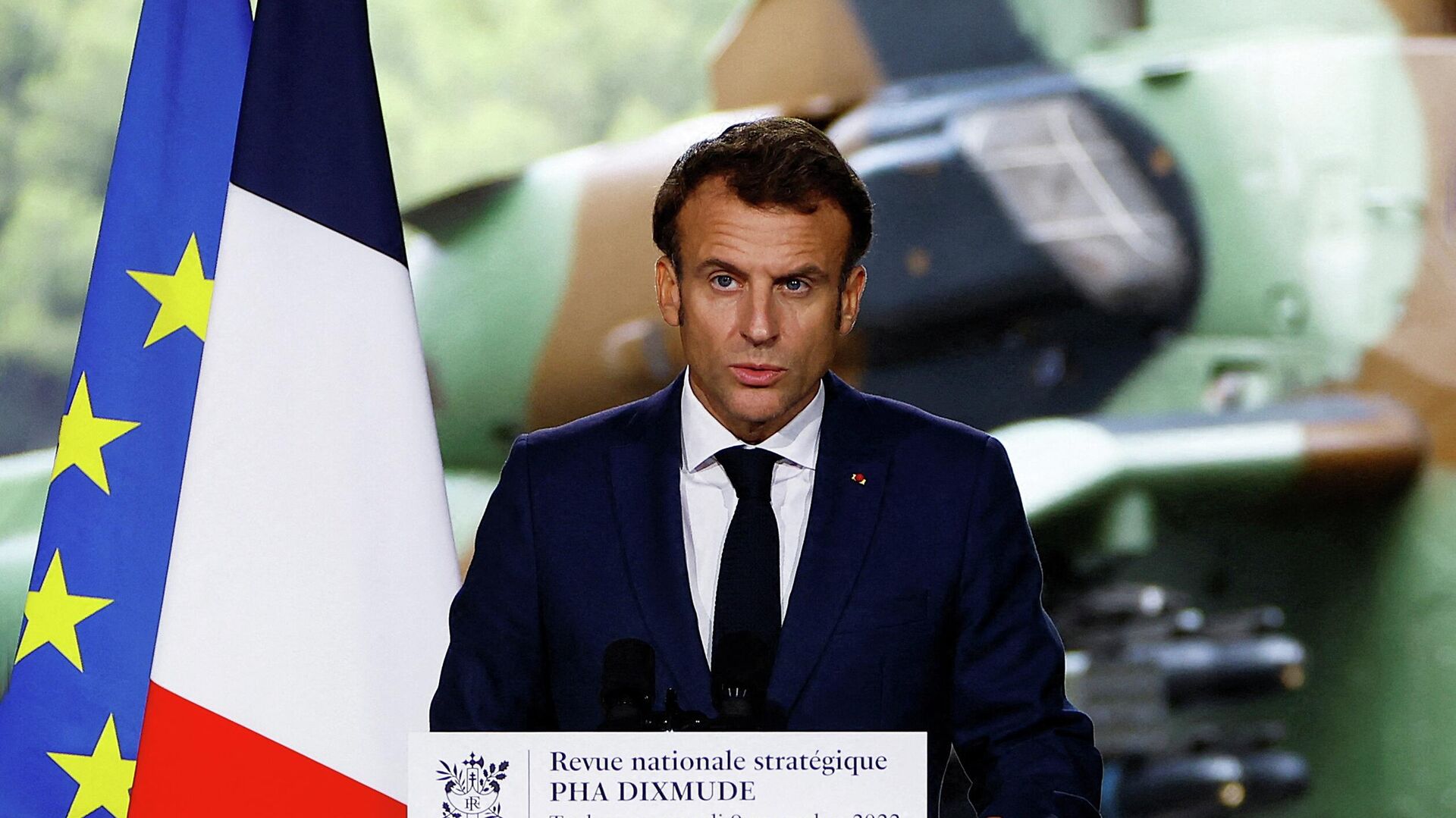Macron Declares Operation Barkhane Over, Despite 3,000 French Troops Still in Sahel
19:11 GMT 09.11.2022 (Updated: 14:36 GMT 23.11.2022)
Subscribe
French President Emmanuel Macron announced on Wednesday that Operation Barkhane was officially over. The eight-year counterterrorism war has been fought across five nations in Africa’s Sahel.
"I have decided, in coordination with our partners, to make official today the end of the Barkhane operation," Macron said in a speech on the French helicopter carrier Dixmude in Toulon on Wednesday.
"Our military support for African countries will continue, but according to new principles that we have defined with them," he said, adding that "our engagements with our partners in Africa will be focused on a logic of cooperation and relying on their arms.”
Barkhane began in August 2014 as an extension of Operation Serval, launched nearly two years earlier after the coup government in Mali appealed to Paris for help in suppressing an out-of-control rebellion by Tuareg rebels in the north who were aligned with Daesh*. Under Barkhane, that mission extended to four other nations - Burkina Faso, Niger, Chad, and Mauritania - and the headquarters moved to N’Djamena, Chad. At its height, the mission included 5,500 French troops, plus local forces.

French President Emmanuel Macron (C) has a lunch break with French troops during his visit to France's Barkhane counter-terrorism operation in Africa's Sahel region in Gao, northern Mali, on May 19, 2017.
© AFP 2023 / CHRISTOPHE PETIT TESSON / POOL
Another coup in Mali in 2021 helped bring Barkhane to an end, after Macron’s government ended cooperation with the coup military government in Bamako. However, by then the war had become enormously unpopular both in Africa and in France, having followed the US War on Terror in developing a reputation for being more effective at bombing civilian weddings than Jihadist military bases.
Another parallel operation, Task Force Takuba, was announced in 2020 to focus on the tri-state region between Burkina Faso, Niger, and Mali, and after the wind-down of Barkhane began in 2021, Takuba was for a time conceived of as its successor. After Mali demanded all French forces leave the country in early 2022, Takuba was also officially ended that August. However, the size and purview of the roughly 3,000 French forces in Burkina Faso, Niger, and Chad has not changed.
However, the presence of French forces has been widely protested in both Burkina Faso and Niger, and Chad’s interim president, Mahamat Idriss Déby Itno, recently indirectly accused Paris of backing large-scale demonstrations against his government.
France was once the colonial ruler of all five countries, which won independence in the early 1960s as the French Empire faced serious defeats in Vietnam, Algeria, and the Sinai. However, it remains a dominant force in many of its former colonies’ politics and economies.
*A terrorist group banned in Russia and many other countries


